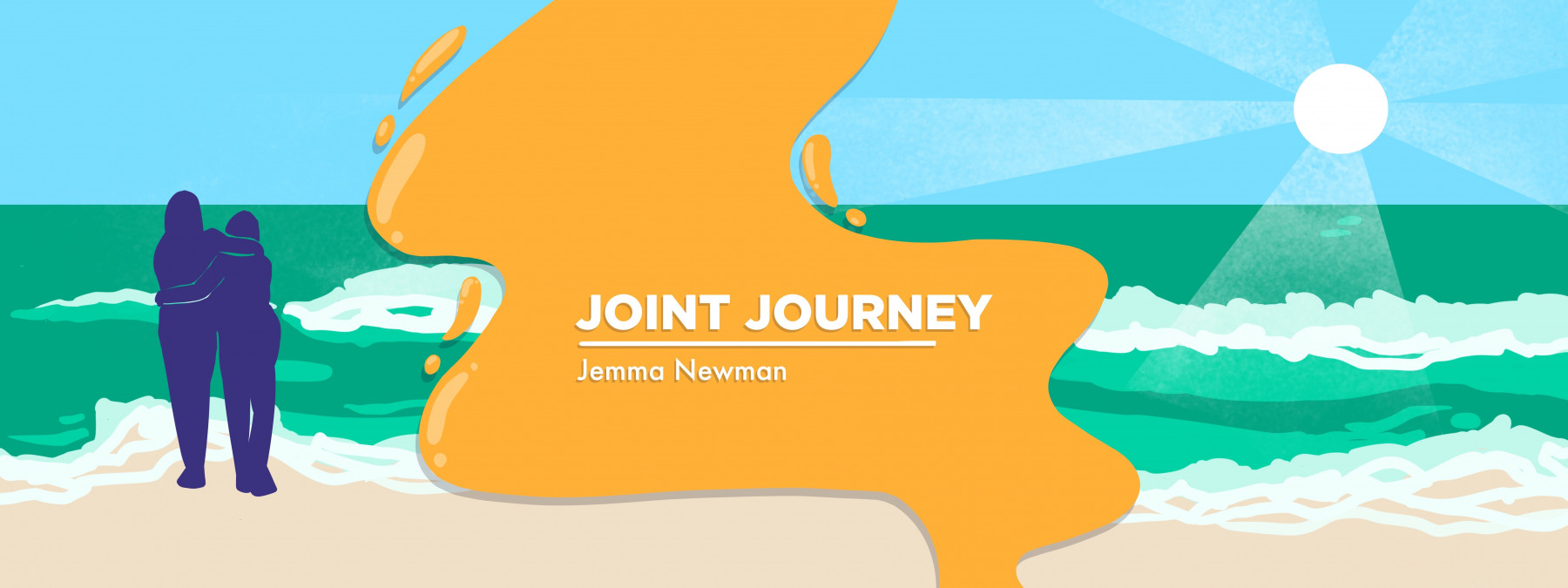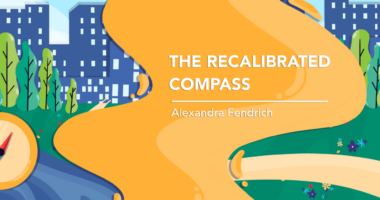Why I’ve avoided thinking about my future with ankylosing spondylitis
Despite an unpredictable disease, a columnist is finally starting to plan ahead

I have strange, recurring nightmares about being stuck in a retirement home (or sometimes a prison — I have no idea why!) and being unable to handle the back pain from my ankylosing spondylitis (AS).
In the nightmare, I’m lying on a bed or sitting on a hard chair and I can’t stand up by myself. There’s no one around to help; it’s just me in a bland, beige room, unable to move. I have no access to medication, and I’m only fed white bread and mashed potatoes — which leads to extra agony because I rely on a no-starch diet to keep my AS symptoms at bay.
I think the scariest part of my dream is feeling that I have no control over my disease or my life. I’m at the mercy of other people and my disease runs rampant, unchecked.
Now, I’m not much of a “your dreams have deep meaning” kind of person, but these nightmares leave me with an underlying feeling of dread about my long-term future.
I’m scared of losing control
At the moment, at the lovely age of 41, I feel that I have my disease pretty well under control. I’ve put an enormous amount of effort into researching and understanding the medications and therapies that might help me manage ankylosing spondylitis. I track my symptoms in a handwritten diary, note any changes, and see a rheumatologist regularly.
I’m starting to feel like I have a handle on balancing all the things that make a difference in my AS symptoms. These include:
- Following an anti-inflammatory, no-starch diet for AS
- Walking, swimming, and doing body weight exercises
- Stretching regularly
- Hot water therapy (a hot spa helps immensely)
- Massage
- Supplements such as magnesium and collagen
- Reducing stress
- Not pushing myself too hard physically or mentally
- Nonsteroidal anti-inflammatory drugs prescribed by a rheumatologist.
But all of these things require me to have a high level of control over my life. They all take time and significant financial resources, which my husband, Dave, and I prioritize and plan for — but nothing is guaranteed for the future.
At some point, perhaps after retirement age, we might not have access to income to support many of the tools that help me manage AS. The no-starch diet alone is very expensive, as it consists mostly of quality meat, fresh vegetables, and olive oil. Dave and I might be unable to help each other cope physically, because we’ve both been diagnosed with AS. These uncertainties put a big question mark over life moving forward.
Why I stopped planning, and why I need to start again
I used to be a big believer in planning for the future. You know, having a five-year career plan and booking holidays in advance. Finances, mortgages, and kids were all carefully considered. But when I was diagnosed with AS in 2019, it threw all my planning into shambles, because I didn’t know what was going to be possible in the next 24 hours, let alone a month or year from now.
Would Dave be able to walk down the hallway? Would I be able to pick up our toddler and baby to get them into car seats? Would we receive help through the hospital, or qualify for expensive AS medication through a government program? These were the daily questions that distracted me from thinking about the future.
But with a few years of experience with AS under my belt, and a solid management plan that’s helping my symptoms, the future feels less unpredictable. I’m more willing to tentatively consider it, and let my brain gently roll some possibilities around without slamming ideas down and mentally shouting, “I can’t take on anything else!”
It feels like the right time to start planning again. Now that I’ve got a sense of control over AS, and it doesn’t feel like we’re on the upside-down part of a roller coaster ride, I want to start preparing the resources we might need to comfortably manage issues and enjoy our future.
Note: Ankylosing Spondylitis News is strictly a news and information website about the disease. It does not provide medical advice, diagnosis, or treatment. This content is not intended to be a substitute for professional medical advice, diagnosis, or treatment. Always seek the advice of your physician or other qualified health provider with any questions you may have regarding a medical condition. Never disregard professional medical advice or delay in seeking it because of something you have read on this website. The opinions expressed in this column are not those of Ankylosing Spondylitis News or its parent company, Bionews, and are intended to spark discussion about issues pertaining to ankylosing spondylitis.








George
I can relate to every point (even the high cost and extreme difficulty of lowering starch and sugar) and it's definitely a tough balance. We have to worry but we mustn't worry too much. Too much is out of our control, regardless of what is often preached. Faith helps. Whether when on top of the world, or in what seems the deepest valley, hope for level ground. Is there any other way than philosophical?
Jemma Newman
I always enjoy your balanced approach George! A philosophical approach is definitely useful - always questioning, pondering, and thinking of the bigger picture.
Martha P.
I was diagnosed with AS when I was 28, married and working full time. Now, I'm 80, a widow, and residing in the independent living section of a "life care" senior community. I can honestly say that I am managing my AS better than ever. I would advise you is to invest in long term care insurance that will enable you to have help with daily tasks at minimal cost as you age and/or your AS worsens. I have no idea what might be available in Australia but here in the US, I was able to buy private long term care insurance when I was 50 years old. Now it pays for me to have a nursing assistant and housekeeper, each twice a week. The laundry, picking up groceries, running errands, cleaning, etc. are all covered at no cost to me. I still cook for myself, although this would be covered too if I needed it. I hope you and your husband will find something comparable available to you. I did have to sacrifice somewhat to pay for the insurance from age 50 to 74, but it was well worth it to have the peace of mind it gave and still gives me.
Thank you for your articles on AS. They are precious to me.
Jean
Martha, that was such a positive and helpful piece of advice- thank you, thank you!
Jemma Newman
I completely agree!
Jemma Newman
Martha, thank you so much for commenting. It means a lot to me to hear from others with AS! And honestly it brings me so much hope to hear your story, I can imagine how much better it would be having some assistance with those physical tasks (in fact, I'd love someone to do them NOW haha!). I'll have to look into insurance, that's an excellent and very practical idea.
George
To Martha: I got more seriously strickened and diagnosed with AS very late in my working life and the long-term care plans you had were long since gone here in the USA. The cost of them had already gone off the charts. Now, for those that really need it, there isn't any such thing available. And currently, we are welcoming in literally untold millions of immigrants every year (who have no resources and no established histories of any kind) who working people have to support when their own social security is already in serious peril. I am not slanting this as it's not just an opinion.
I didn't want to be a downer on your lovely post. It is certainly great to read of your positive and healthy situation! All the best to you.